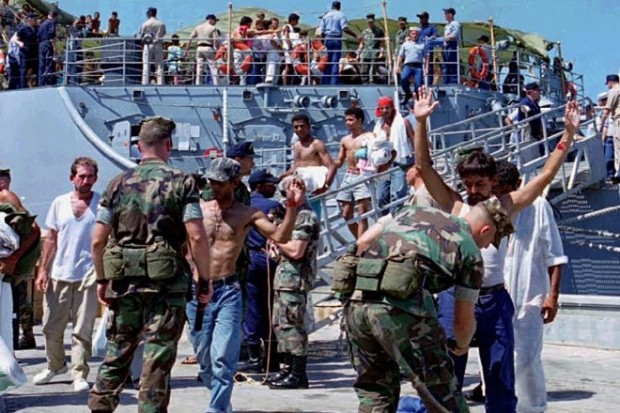-
Tips for becoming a good boxer - November 6, 2020
-
7 expert tips for making your hens night a memorable one - November 6, 2020
-
5 reasons to host your Christmas party on a cruise boat - November 6, 2020
-
What to do when you’re charged with a crime - November 6, 2020
-
Should you get one or multiple dogs? Here’s all you need to know - November 3, 2020
-
A Guide: How to Build Your Very Own Magic Mirror - February 14, 2019
-
Our Top Inspirational Baseball Stars - November 24, 2018
-
Five Tech Tools That Will Help You Turn Your Blog into a Business - November 24, 2018
-
How to Indulge on Vacation without Expanding Your Waist - November 9, 2018
-
5 Strategies for Businesses to Appeal to Today’s Increasingly Mobile-Crazed Customers - November 9, 2018
Cuba talks on migration at impasse
Going into the biannual talks, Cuba made it clear that it thought USA policies were a stimulus for Cubans who travel to other Latin American countries and then make their way north to the Mexican border with the United States where they ask to be admitted under the Cuban Adjustment Act. Representatives from the State Department, Coast Guard, DEA and ICE will meet Cuban government representatives to discuss methods to stop illegal flows of narcotics traveling between the countries.
Advertisement
US law allows Cubans who reach dry land to stay and ultimately gain permanent resident status, a Cold War era policy that some would-be immigrants fear will end as US-Cuban relations normalize.
The Havana delegation reiterated in a communique its “profound concern” at the persistence of a “politically motivated handling of Cuban migration issues” by the United States.
The United States is concerned about the matter and about the safety of the migrants, but it is an issue that goes beyond bilateral U.S.-Cuban relations, a State Department spokesman said requesting anonymity.
According to officials from Cuba’s foreign ministry, the Cuban delegation will be headed by by the director general of the United States Office of the Foreign Ministry, Josefina Vidal; and that of the United States by the deputy assistant secretary of the US for South America and Cuba, Alex Lee. The irony is that most of the Cuban migrants have applied for tourist visas to the U.S. but were denied. On the other side of that border and along the migrant’s routes, Costa Rica and other countries with close US ties are trying to find a way to let the Cubans journey north.
Several hundred Cubans protested on Friday at the Ecuadorian Embassy in Havana.
Cubans will “always be welcome” in Ecuador, said Xavier Lasso, the deputy foreign minister, in a statement, adding that the new rules are necessary to “prevent violations of human rights and even loss of life”.
In Miami, the Cuban American National Foundation said Monday that it was working on a program to help the Cubans stranded in Central America.
Advertisement
“We’re looking into an [air evacuation], but since there’s not [existing] regional agreement each [Central American] country chose to announce their measures at their own time”, Guillermo told 14 Y Medio, an anti-Communist news agency founded by Cuban dissident Yoani María Sánchez Cordero. “From Ecuador, the most unsafe trip starts through Colombia, Central America and up to Texas”, Perez said.





























